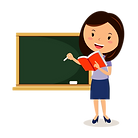
PreDys
PreDys: Supporting Children At Risk Of Dyslexia At the Transition Period From Pre Primary to Primary
PreDys is an international project that was born thanks to the collaboration with Erasmus + and its main objective is to support children at risk of dyslexia in the transition period from early childhood education to primary education.
Partners: Bulgaria, Latvia, Spain, Turkey, Portugal and Greece

MATERIALS
Pedagogical Frame Report
Guide for parents
Guide for teachers
Worksheets
Checklist
Predys Piloting Guide
Multiplier Event Report
LTTA1 Feedback Report
Multiplier Event Spain

PICTURES






Moving Stars
MOVING Safely To All RoadS
The MOVING STARS project aims to bring together schools, road safety experts, teachers, and advanced educational applications developers to design, develop and validate an innovative movement games-based approach for Traffic Safety & Mobility Education in Kindergartens and primary schools.
The idea is to combine digital applications with “traditional” movement games containing sensorimotor, linguistic, cognitive, social, and emotional elements to promote a holistic approach for traffic safety, appropriate to the developmental stage of students between 5 and 11 years.
Partners: Greece, Turkey, Spain, Ireland and Poland

MATERIALS
Activities for 5-7
years old
Activities for 8-11
years old
Activities for 12-14
years old
PICTURES





Playing: Enhancing the quality of preschool services through innovative play-based learning methodologies.

Playing
Early childhood education it is a very important element in a child’s life and offer the opportunity to detect and respond to children’s individual needs and build their strengths, giving a fair start to all children, especially those coming from disadvantaged backgrounds. Starting from the importance of offering high quality preschool services, the project partners have recognized the shared need of training teachers on pedagogical methodologies fostering social inclusion and developing children’s ability to learn and to master the language of instruction.
Besides, the project partners recognize an essential role in pre-primary education to the PLAY, as is the major modality to stimulate the mental and physical capacity of children and to facilitate their adaptation to the requirements of formal education. Play can have a large impact on development and in particularly in social development, language skills and cognitive development.
For this reason, PLAYING project meets the need of training preschool staffs, making sure to give due importance to the play in children’s learning and improving access and quality of the early childhood education and care systems.
Partners: Sweden, Italy, Denmark, Belgium and Spain

MATERIALS
Flyer
Mapping of play-based learning as a teaching method


PICTURES






Story Changers: Enhancing Pupils’ Social Skills and Enriching Teaching Methods Through Storytelling and Virtual Reality
Story Changers
Story Changers aims to develop primary school pupils’ social skills through a combination of storytelling and virtual reality, as well as to provide teachers with innovative teaching tools for the development of their pupils’ soft skills.
This will be achieved through the creation of the “You Tell” stories, a series of interactive stories for primary education pupils with several alternative plots (based on the methodology of Gianni Rodari and Eugene Trivizas) to be chosen by pupils based on their social skills and values. Five of these “You Tell” stories will be converted to interactive VR scenarios. The stories and VR interactive scenarios, along with other deliverables (e.g., icebreakers, guides), will be included in the “Change the Story” teaching package compiled to be used by teachers inside and outside the consortium for the development of their pupils’ social skills.
Partners: Greece, Spain, Cyprus, Malta and France

1st Press
Release
MATERIALS
2nd Press
Release
Poster
1st
Newsletter
2nd
Newsletter
Brochure
Best
Practices
Guide 1
Guide 2
The red
crab island
Kike and Redfeathered
The Mystery of the Missing Moon
The brightest
firefly
Games about life and the world
How can I say
no to you?
The carob
tree
Rospo
The scary
dictionary
PICTURES






Tales, Myths and Legends: Reading tales, myths and legends from our regions to give our learners a taste for reading and thus fight against inequalities in learning to read and promote the inclusion of all.

Tales, Myths and Legends
This multidisciplinary project around the tales, myths and legends specific to each country concerned, is a vector of learning because the mythical stories, by the values that they drain, are interesting:
-
For the construction of culture (integration into a cultural identity), since they are at the origin of the major themes developed by literature or the arts.
-
For citizenship education, another key element of education, because they are indicative of belonging to a community.
-
To help pupils in difficulty, precisely because these stories pose real problems rooted in the depths of human beings. They therefore carry structuring elements for the individual.
-
To discover the world because they allow mediation of intercultural (and intergenerational) exchanges, facilitating awareness of the universal under the particular.
Partners: France, Italy, Greece and Spain

MATERIALS
PICTURES





Cities Going Green

Cities Going Green
Cities Going Green aims to cultivate environmental consciousness to pupils at the ages 10-12, through environmental education, STEM education and gamification.
The project aims at the development of a game available for PC/laptops or mobile devices, where children will have the opportunity to build their own ‘Green Cities’.
The consortium of the project consists of nine organizations from 5 countries (Poland, Cyprus, Greece, Spain, Estonia).
The main objectives of the project are the following:
-
To cultivate the environmental consciousness of pupils together with other transversal skills and competences
-
To develop a theoretical framework based on which it will cultivate the environmental consciousness of primary school pupils of age 10-12 years
-
To engage pupils with STEM and to develop the key skills of pupils through STEM
-
To design a state-of-the-art game that will combine Environmental Education, Gamification and STEM Education
Partners: Poland, Greece, Cyprus, Estonia and Spain

Press Releases
MATERIALS
Newsletters
Students Focus
Report
Teachers Focus
Report
Experts Focus
Report
Poster
Brochure
Learning
Outcomes
Theoretical
Framework

PICTURES




Mindfulness in schools can support a more sustainable world
Mindfulness in schools
In this project, the goals created to improve teachers’ professional development and key competencies are as follows:
-
To enable them to use the scientific-based practices of mindfulness correctly by developing their mindfulness skills, and to increase their ability to adapt them to their classes.
-
To gain the ability to prepare “Mindfulness Student Training Modules” in order to teach about awareness in their classes.
-
To provide families with knowledge about mindfulness practice to support their children in the home environment.
-
To guide students to enable them to transfer their knowledge about environmental awareness, consumption habits and media usage to daily life.
-
To promote their development by communicating and cooperating with other teachers in partner schools and sharing their practices.
-
To have an on-site training experience in the European context, both institutionally and among educators.
Partners: Turkey, Ireland, Germany and Spain

Breathing
activities
MATERIALS
Enviroment
activities
Technology
activities
Senses
activities

PICTURES


Protect Nature, Nature is my future

Nature is my future
Early childhood is the period in which the foundations of adult personality, attitudes and behaviors are laid. In order to raise individuals who are respectful, sensitive and environmentally conscious towards their environment, gaining behaviors and attitudes in early childhood is important in terms of fighting against environment and climate change. In our project, it is aimed to achieve lasting results in environmental awareness by starting environmental awareness in early childhood (36-84 months). Children of 36-84 months need learning methods such as fairy tales and gamification, in which they can learn by doing, observe, experience change, embodying abstract concepts, as per their developmental period. In our project, it is aimed to create opportunities for students to spend time with nature, to recognize, love, protect and create sensitivity towards nature, and to develop permanent knowledge, skills and attitudes by creating educational environments where they can experience the productivity of nature. It is aimed to create environmental awareness by embodying and explaining abstract concepts about climate and environment, such as climate differences, environmental problems, and the correct use of natural resources, through games. It is aimed to tell what the cultural heritages of the countries created by the climatic differences are with picture storybooks and to raise awareness about the negative effects of climate changes on cultural heritage. It is aimed to make nature and environmental activities in the school curriculum functional, to see how nature and environment are used in preschool education models in different cultures, and to integrate good practices into our school.
Partners: Turkey, Lithuania, Italy and Spain

.jpg)
PICTURES

.jpg)
ACW: The Art of Creative Writing

The Art of Creative Writing
Our project aims to achieve the following:
• To foster motivation and engagement of students with art and writing through inclusive groupwork activities.
• To nurture student creativity using a cross-curricular approach, incorporating visual arts and literacy.
• To develop students' skills in basic areas such as linguistic competence, both in their mother tongue (for our partner
schools) and in English.
• To promote European artistic heritage.
• To develop ecological awareness and environmental consciousness in students through the creation of art with recycled
materials.
Partners: Ireland, Turkey, Romania and Spain

MATERIALS
Lesson plans
PICTURES
STEM's Challenge is the Future!

STEM
In the project, the priority is to encourage interest in the STEM approach, recognition of learning outcomes for those participating in cross-border learning mobility, struggle with environment and climate change, and green skills. Stem skills to be gained in primary school education have great importance in achieving sustainable development goals. The targets of
our project are based on storytelling and gamification. It is quite possible to call attention to the stem approach at an early age with storytelling and a game-based approach, considering the pedagogical characteristics of the students. The applications of Makerspace, Tinker, Growplanet and Stem Discovery Week will support students to learn while playing and will also enable them to use technology appropriately and correctly. In the project, it was aimed that the teachers also have transnational learning outcomes, these have been determined as preparing 5E-based Stem plans, storytelling in Stem,
different environment experiences in Stem education.
Partners: Turkey, France, Germany and Spain

STEM prezi
MATERIALS
Fairy Tales
STEM presentation
STEM Plans





.png)







































































